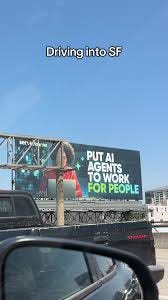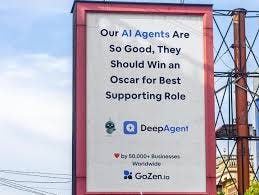Word of the week: High-agency
Tired: "Disruptor." Wired: A pseudo-psychological modifier that also sounds a little druggy.
Once upon a time, eleven days ago, the 47th president of the United States and his megabillionaire “first buddy” got into a very public war of words, conducted mostly over their respective social-media platforms, Truth Social and X. Elon Musk accused Donald Trump of “such ingratitude”; Donald Trump threatened to take away Elon Musk’s government contracts. The Washington Post called it “the epic breakup” of a “bromance.” New York Congresswoman Alexandria Ocasio-Cortez smiled into a reporter’s camera and said, “Oh, man, the girls are fighting, aren’t they?”
The girls seem to have kissed and made up — Elon backed down, according to most reports, because after all a big beautiful government contract is nothing to sneeze at — but I’m not here to talk about the squabble. I’m more interested in how certain denizens of the manosphere interpreted it, and I’m especially interested in one particular term they used: high-agency.
Most typical, and most cited, was MAGA man and One America Network host Jack Posobiec, who tweeted on June 5: “Some of y’all cant [sic] handle 2 high agency males going at it and it really shows.”
High-agency males can’t be bothered with punctuation.
(MAGA man Joey Mannarino — ignore the little-boy nickname; man is right there in his surname! — was even cruder: “People forget how men with testicles spar. You’re watching two people with balls the size of the moon debate an issue. This is what masculinity look [sic] like.” There was a chorus of agreement from gay men. And others.)
But enough high-larity. What about high-agency?
“Move over, disruptors. Everyone wants to be seen as ‘high agency’ now” read the subhed on a February 6, 2025, Business Insider story headlined “Tech’s hot new buzzword” (archive link):
They used to call themselves “self-starters.” Then it was “disruptors.” Now everyone in the tech set has a new self-description of choice: “high agency.”
Over the past year, high agency has become the aspirational character trait of Silicon Valley. Early last year, the analytics site Brandwatch found there was a 500% jump in mentions of the phrase across X, Reddit, and other social media sites. Not one but two podcasts titled “High Agency” have launched, one dedicated to AI, the other to entrepreneurship. On LinkedIn, a wide range of sectors, from solar to crypto, are suddenly seeking high-agency applicants. And on Substack, tech-culture essayists are schooling readers on how to ratchet up their high-agency qualities, which are said to be possessed by tech elites and top athletes.


Business Insider attributes the “high-agency” coinage to Eric Weinstein, who is, or was, the managing director of Peter Thiel’s venture-capital firm, Thiel Capital. (Weinstein’s X bio reads, in full: “Interested in prebunked malinformation. More on prebunking here.) In a 2016 appearance on a podcast hosted by self-help “guru” Tim Ferriss, Weinstein said “a high-agency approach to the world is ‘constantly looking for what is possible, in a kind of MacGyverish sort of a way’.”1
High-agency is the latest spin on agency, a concept in psychology since at least the 1950s, and in philosophy for millennia. “An agent is a being with the capacity to act, and ‘agency’ denotes the exercise or manifestation of this capacity,” is how the Stanford Encyclopedia of Philosophy puts it. (Keep reading for the latest manifestation of agent, which naturally involves AI.)
But it was only in the last few years that agency, and especially high-agency, caught on in tech circles. Billionaire tech/VC guy Marc Andreesen, famous lately for his embrace of MAGA, gave high-agency a boost in September 2024 with a tweet that endorsed the high in high-agency:
Why high-agency now? Well, maybe we’ve just grown weary of other buzzwords like proactive. A March 2025 article for The Conversation, “‘High agency’: what the science says about the latest tech buzzword,” zeroed in on some key themes:
The concept of “high agency” is an amalgamation of, or an umbrella term for, a range of traits that psychologists have studied for decades. Related concepts include the prized “growth mindset” (the belief that one’s talents are developable rather than innate), “proactivity” (acting in advance of, rather than reacting to, situations), and the somewhat controversial “grit” (perseverance in the pursuit of long-term goals). . . .
High agency, as the tech world sees it, appears to borrow from all these concepts, wrapped up in one convenient package. Agentic people are those who see possibility where others see barriers, take action rather than wait to be told what to do, and aren’t afraid to go after what they want.
These traits are also stereotypically associated with particular people in society: members of advantaged majority groups, such as men, those with high socioeconomic status, and white people.
(Emphasis added.)
There’s another reason for high-agency’s appeal. In “The Curious Rise of the High-Agency Person,” published on February 11, 2025,
drew this conclusion:It is not [sic] coincidence that the concept of agency is catching fire at the same time artificial intelligence has come to dominate tech’s mindshare. AI “agents” which can take action in the world instead of being confined to their own applications are well on their way, and questions about what it means to be human are at the forefront of people’s minds.
You can’t drive around San Francisco without seeing dozens of outdoor ads for AI “agents.” So much friendlier than “bots”! So suggestive of helpful humans like “travel agents” or “literary agents” or “real estate agents,” not to mention “secret agents.” Secret agent was, by the way, MacGyver’s profession.


How to survive in this new uncanny valley, where AI agents perform our jobs and even the “artisans” are nonhuman? By hyping your own high agency. Or, as Forbes asked in May, a little nervously, “As AI advances, is teaching kids to be high-agency generalists the answer?” (tl; dr: Yes.)
One last note about agency, and it has nothing to do with AI or psychology.
Last week I learned via
’s Feed Me newsletter about an agency/consultancy/publisher called NO AGENCY. (Its URL is no.inc, which is kind of brilliant.) NO AGENCY is in Manhattan’s Nolita (“north of Little Italy”) neighborhood, which may explain the name — they don’t say. But now that high agency is ubiquitous and downright oppressive, I have to say it’s a little refreshing to see a business that votes nyet to the whole proposition.MacGyver for beginners: https://en.wikipedia.org/wiki/MacGyver. Also, did you know that MacGyver’s original first name was Stacey?





High-maintenance sounds more appropriate to me
Funny, when I hear someone using words in novel ways and just making up their own definitions, I start to think they might be hiding the real truth or something. Or just fucking lying.